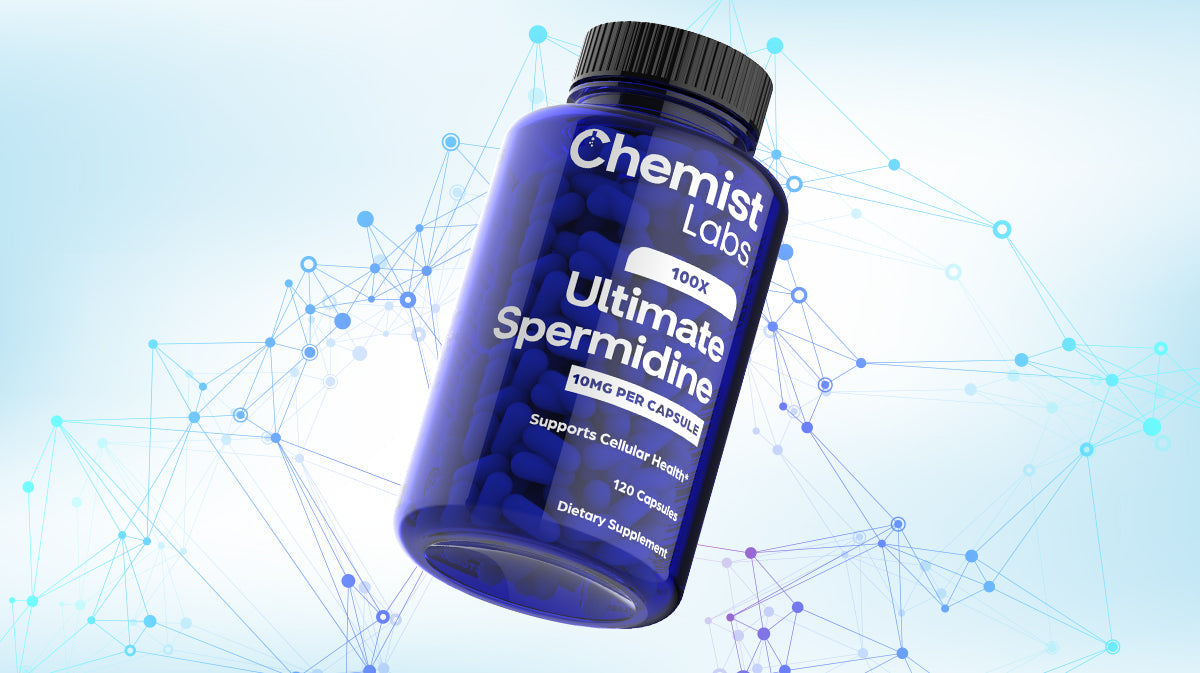Methylene Blue: What Is It and Why Are More People Taking It?

What Is Methylene Blue?
Methylene blue (MB) is a synthetic compound that was first developed in the late 19th century as a dye. Over time, researchers discovered that it has various biological effects, leading to its use in medical and research settings. It has been used for treating methemoglobinemia (a blood disorder that affects oxygen delivery), as a stain in microscopy, and even as an antimalarial drug in the early 1900s (Schirmer et al., 2003).
More recently, methylene blue has gained attention outside of traditional medicine, with some individuals incorporating it into their wellness routines. But what does the science say about this trend?

Why Are More People Taking Methylene Blue?
Although methylene blue has been studied in various contexts, there has been a rise in public interest in its potential cognitive, metabolic, and anti-aging effects. Some of the key areas of exploration include:
1. Potential Cognitive Support*
Several studies have explored methylene blue’s potential effects on brain function. Research suggests that it may influence mitochondrial function and cellular energy production (Callaway et al., 2004). A small study published in the Journal of Geriatric Psychiatry and Neurology found that low doses of methylene blue might enhance memory performance in healthy adults (Rodriguez et al., 2016).
2. Mitochondrial Function and Cellular Energy*
Mitochondria, often called the "powerhouses of the cell," play a crucial role in energy production. Some researchers have proposed that methylene blue can act as an electron carrier, potentially helping with cellular respiration efficiency (Atamna et al., 2008). However, more research is needed to determine how this translates to long-term health effects.
3. Antioxidant and Redox Properties*
Oxidative stress is linked to various aging-related processes. Methylene blue has been studied for its antioxidant properties, as it may help balance redox reactions within cells (Bruchelt et al., 2000). Some experimental models suggest that it could play a role in reducing oxidative damage, but clinical evidence in humans remains limited.
4. Interest in Longevity and Anti-Aging Research
With the increasing popularity of longevity research, methylene blue has caught the attention of biohackers and longevity enthusiasts. A study in Aging Cell proposed that methylene blue might have protective effects in certain models of neurodegeneration (Riedel et al., 2019). However, the long-term implications for human aging are still unclear.
Is Methylene Blue Safe?
Methylene blue is FDA-approved for specific medical uses, such as treating methemoglobinemia, but its safety profile depends on dosage and individual factors. Some known side effects include:
- Urine and skin discoloration (a harmless but noticeable effect)
- Gastrointestinal discomfort at higher doses
- Potential interactions with certain medications (such as SSRIs, due to the risk of serotonin syndrome) (Gillman, 2006)
It's essential to consult a healthcare professional before taking methylene blue, especially if you are on medications or have underlying health conditions.
The Bottom Line
Methylene blue is a fascinating compound with a long history in medicine and research. While studies suggest potential effects on cognition, mitochondrial function, and oxidative stress, more research is needed to understand its long-term impact on human health.
If you're considering methylene blue, it's crucial to rely on scientific evidence and consult a healthcare provider before using it. As interest in longevity and cognitive health grows, we can expect further research to shed more light on this intriguing molecule.
References:
- Atamna, H., & Kumar, R. (2008). Methylene blue and Alzheimer's disease: Mechanisms of action. Aging Cell, 7(6), 783-789.
- Bruchelt, G., et al. (2000). Methylene blue in pediatric oncology: Potential for use as a redox chemotherapeutic agent. Free Radical Biology and Medicine, 28(4), 490-500.
- Callaway, N. L., et al. (2004). Methylene blue improves brain oxidative metabolism and memory retention in rats. Pharmacology Biochemistry and Behavior, 77(1), 175-181.
- Gillman, P. K. (2006). Methylene blue implicated in serotonin toxicity. Journal of Clinical Psychopharmacology, 26(6), 684-685.
- Riedel, W., et al. (2019). Methylene blue and neurodegenerative diseases. Aging Cell, 18(5), e13062.
- Rodriguez, C., et al. (2016). Methylene blue improves memory retention in healthy older adults: A randomized controlled trial. Journal of Geriatric Psychiatry and Neurology, 29(3), 140-146.
- Schirmer, R. H., et al. (2003). Methylene blue as an antimalarial agent. International Journal for Parasitology, 33(1), 139-146.
"These statements have not been evaluated by the Food and Drug Administration. This product is not intended to diagnose, treat, cure, or prevent any disease."



Comments